 "BJL" (simplifyandaddlightness)
"BJL" (simplifyandaddlightness)
05/14/2014 at 10:00 • Filed to: Research, Driverless, Google, Autonomous
 1
1
 3
3
 "BJL" (simplifyandaddlightness)
"BJL" (simplifyandaddlightness)
05/14/2014 at 10:00 • Filed to: Research, Driverless, Google, Autonomous |  1 1
|  3 3 |
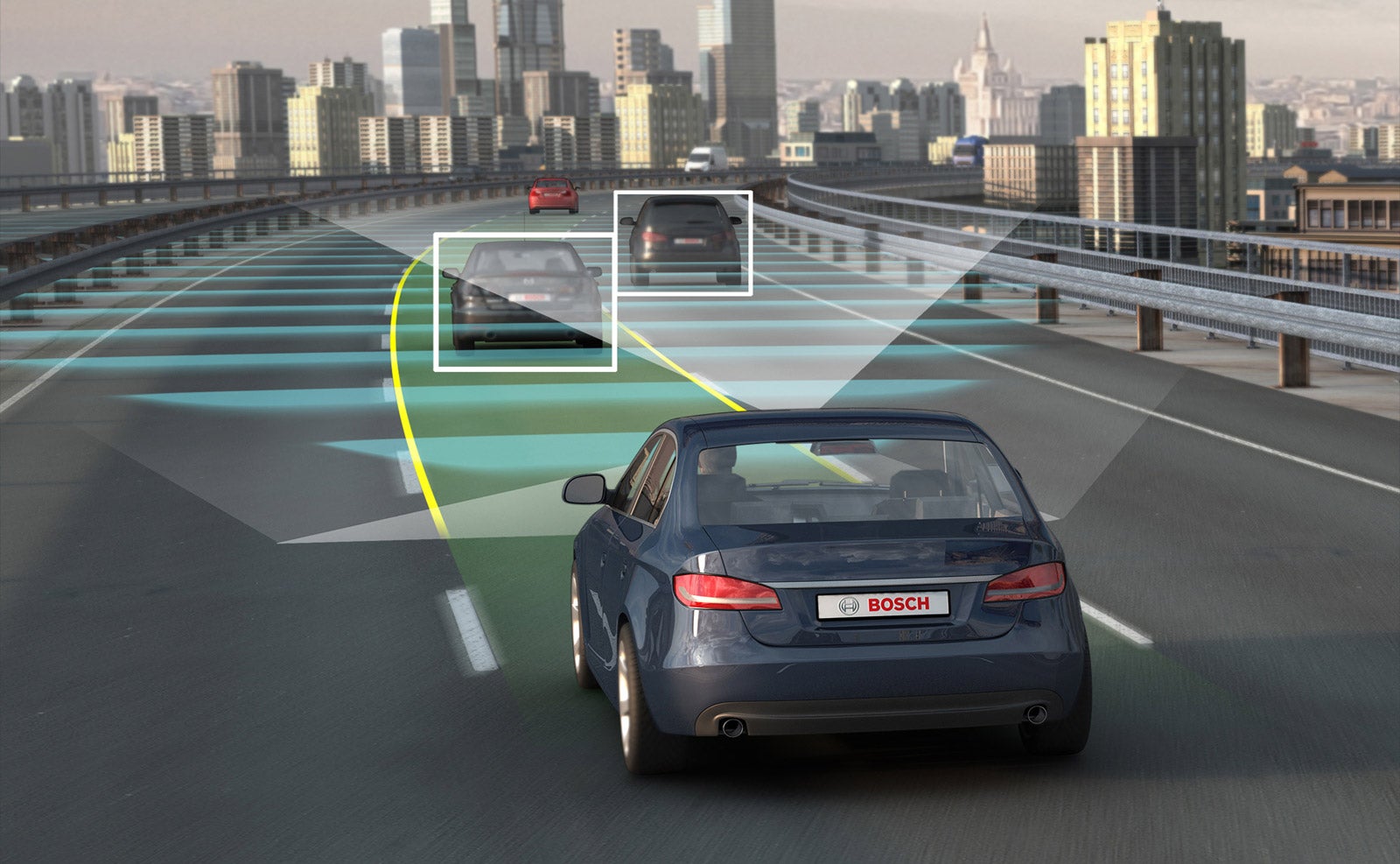
Humans are known to make mistakes. It is in human nature. So, when an opportunity comes where humans can become spectators of an automated action instead of being the performers, it is human nature to pursue the possible remedy. One of the most dangerous times when a human can make a mistake is while driving a car, but now, inventors are trying to fix that. However, people must reconsider what is actually happening when autonomous cars are integrated into society. Although scientists have said that the result of such an integration could lead to both a decrease in fuel consumption as well as a decrease in accidents, the real world repercussions of such an integration are detrimental. Those who want autonomous cars in their cities say that it would allow them to both travel more freely, and optimize the cities use of parking spaces. To start off, the jobs of millions of people would be put at risk due to professional drivers not being needed to drive big rigs or taxis. To add onto that, shocking statistics point out that humans could be actually less safe in uncommon driving phenomena than they are now. Finally, what is truly lost by the integration of the satellite controlled car are human values and principles. The autonomous car must be really reconsidered right now while it is in its infancy. People need to question the thought of a self-driving car before the money spent on the endeavor forces companies to continue creating this technological monster that people will regrettingly have to buy.
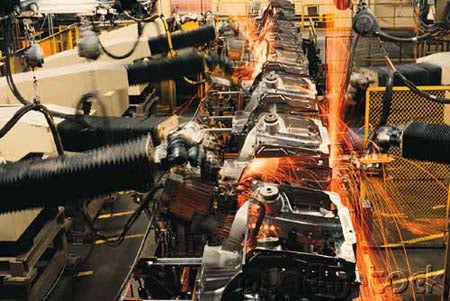
Automation as well as invention has allowed humans to progress as species throughout history. Inventions have fueled automation, which in turn has been the goal of humans for centuries now. There have been very good uses of automation such as the invention of the printing press, but there has also been some negative iterations. Some controversial examples of automation include the invention of the automated teller machine, the use of the robotic assembly line, and even electronic check out machines. These machines have created a stir because they create a society dependent upon electronics and less dependent on human interaction; meanwhile, they do save money ("Robot"). Recently, the autonomous car has been making headway as the next big advance in human development. Autonomous features for cars had already hit the market years ago such as the parking assist feature on Ford vehicles. These features are not all recent and groundbreaking technology, however. Such advancements like anti-lock braking was accomplished decades ago, and that feature takes the responsibility to stop quickly away from drivers. When all of these features and a little more are compounded, a car, in theory, can be created to drive itself. In fact, Google has developed a car which has logged numerous miles without having one at fault accident ("Google"). That being said, the car did have an accident with another motorist where the other motorist was at fault ("Google"). Recently, Nevada has allowed the use of such vehicles to transport people on public roads ("Google"). When thought about in more depth, however, a problem emerges. Automation has allowed businesses to sell products without needing to bother with patrons. In the same way that this separation between owners and patrons has resulted in a growing disconnect in the two groups, a disconnect must therefore form between a driver and his car, potentially resulting in something much more severe than strained relations: death. Moreover, if this system is implemented, millions of people will lose their jobs, and the whole American economy could collapse.
Unemployed Americans face a lot of challenges getting a job right now. Currently, 6.7 percent of the population in the United States is unemployed ("Labor"). Just fifteen years ago, before the integration of computers into the daily lives of humans, the unemployment rate was just 4.3 percent ("Labor"). A trend of a graph of the unemployment rate since 1948 shows that the time periods with the lowest number of unemployed has been increasing ("Labor"). With the growing amount of services needed due to the higher quality of life, one would venture to say that unemployment rates should be going down. The latest integration of robotics into business will lead to a higher unemployment rate when compared to years with similar circumstances. Many cashiers are currently losing their jobs to automatic checkout stands. Currently, kiosks attended by one employee can cash out 4 customers as seen at any large chain store such as the Home Depot. That means that three cashier jobs were potentially lost. The newest form of automation would also result in a very noticeable jump in unemployment. Currently, there are 42,000 professional drivers working in the field of taxi driving ("Taxi"). All of them would lose their jobs if autonomous cars were invented. Furthermore, there are currently 8.7 million professional truck drivers in the United States ("Truck"). The American workforce as a whole only has 144 million people ("Reminder"). That means that professional drivers cover over six percent of the US workforce. If all of those jobs were displaced, the highest ever recorded amount of unemployment, recorded in 1982 to have a value of 10.8 percent, would be crushed by a 12.8 percent rate of unemployment ("Labor"). That is twenty-eight percent worse unemployment rate than the rate of unemployment recorded in the economic collapse of 2009. Unlike the situations found in the worst economic periods in US history, these jobs would be lost forever. In the past, the people could be hired back once times got better. However, if these people were to be phased out, jobs would need to opened in different sectors, which has never happened in U.S. history on the same scale. This potential economic collapse would be the direct result of the integration of the autonomous car. Therefore, people must decide now if they want millions of people to lose their jobs and their livelihood. Everyone in America will be negatively impacted by a bad economy. At the same time, these people must also question if the potential benefit truly exists. Scientific studies suggest that people could be less safe when in autonomous cars than they are now.
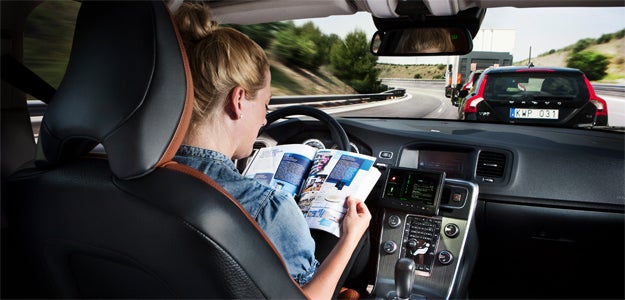
The whole theory behind autonomous cars is that they will increase security for both drivers and occupants while on the road (Knight). Contrary to the conclusion, however, is that people will be in fact less safe after implementation. Right now, people are able to react to driving situations by swerving and slowing down once they notice what is going on. When the road is fully comprised of autonomous cars, there will be no one changing lanes without checking their blind spot, and there will be no cars cutting off other cars due to proper programming (Knight). However, the theory of every driver in America owning an autonomous car is off base. Whether it is a new kid that can only afford what he has, or it is someone who just wants to drive themselves around, autonomous cars will still have to deal with people. With that in mind, there will always be people who forget to check their blind spot and merge with traffic; hence, the accident that the Google car had gotten into ("Google"). Drivers currently are able to react by both slowing down and changing their placement in their lane. If autonomous car would just continue on normally and an accident would be created. I have to agree that it is not the robot's fault, but if there is an accident every time that drivers have to drive defensively, something needs to be reconsidered. Furthermore, according to an advocate for autonomous cars, Will Knight, cars are able to realize when they are incapable of dealing with a situation (Knight). This is great in theory so that drivers can react and avoid the crash, but it will not work. Before long, people will start to get behind the wheel both inhibited or unable to drive (Chappell). People will start to take advantage of the autonomous car by possibly even sleeping behind the wheel (Chappell). None of these people would ever get in trouble because there would not be any reason for them to be pulled over. However, if the autonomous car for some reason needs to hand over the reigns to the driver while they are not capable to do the maneuvering, the car will crash (Chappell). Furthermore, if the driver is able to drive, they will be less likely to react to the disturbance than if they were driving the whole time. Evidence is provided by Knight, who recognizes that the reaction time for people gets worse on both ends of the spectrum, when people either have too little or too much to concentrate on. Currently, driving takes up just enough concentration for the human reaction time to be optimal (Knight). However, if autonomous cars were integrated, an alert driver would not be able to react in time before a collision if the car gave them control. This is not the only reason for a crash, however. Even now, before the autonomous car has even been implemented, cars can be hacked. For example, the Prius, the same car that the autonomous car is based on has been hacked (Babb). The hackers have been able to make the car read faulty speed recordings, and if the hackers had chosen, they could have deployed the airbags at any time in the ride (Babb). Furthermore, the hackers were able to completely disable the brakes for the car (Babb). As the technology develops, this will become a greater concern. Taking humans out of the driver seat only multiplies the concern. In the end, who do we trust more: ourselves or pre- programmed robots?
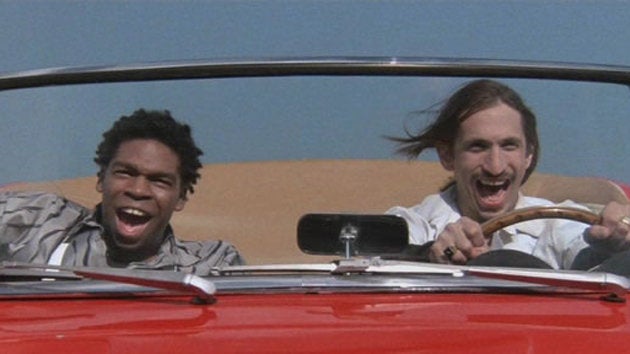
Finally, the impacts that the autonomous car will have on the human spirit is troubling. There is already a disconnect between the current generation and driving (Glucker). The current assortment of 16 year olds to 35 year olds, called millennials, feel differently about cars than people of the past (Glucker). Millennials feel that they can text while driving even though it is dangerous, and that cars are based on unsustainable trains of thought due to their fuel consumption (Glucker). Without arguing any beliefs, there is an undoubtable disconnect between cars and Millennials. Add to that a complete disconnect between the driver and the road, and a problem emerges. A car barrelling down a highway should be considered dangerous no matter of the driver. Millenials, or anyone for that matter, will be seduced into a feeling of false security if the autonomous car is implemented. Autonomous cars will crash because there are some unavoidable accidents on the roadway. This sense of false security is actually pushing the autonomous car to become a reality. So, the real question that must be asked while this car is being invented is whether we as humans trust ourselves less than we trust technology. In 2011, less than half of the population, 42 percent, trusted technology such as the internet (Currie). In 2013, the number had grown past 50 percent of the population to 59 percent of people who trusted technology (Currie). This growing number of people who trust technology suggests that machines made by people are more trusted than the people themselves. Something that a person will have to ask upon the purchase of a new car is whether they are willing to trust their most valued possession, life, to something that was made in a factory. What people need to realize is that all machines are made by people, all codes written are written by people, and people make mistakes (Chappell). Furthermore, if transporting oneself from one place to another in a car is too much of a hassle for the current generation, more than the advent of the autonomous car should be reconsidered. Human nature should allow for the freedom of self travel to exist. If autonomous cars were to be implemented, people would no longer be able to move one place to the next without the autonomous chauffeur carting them around. This would ruin the experience of adventure and life lessons that cars can provide. The day is coming where people will willingly give up freedoms because they can no longer trust themselves with their own life. One reporter who wants this to happen is Will Knight.
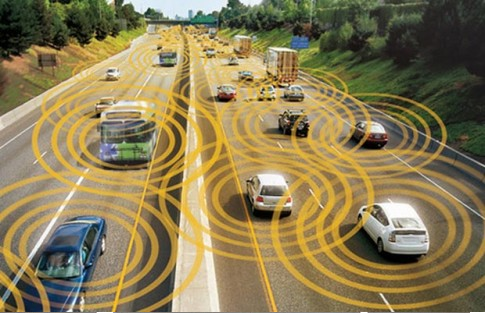
Knight writes in his article, "Driverless Cars," that there is a lot to gain by implementing autonomous cars. To start off, autonomous cars will be able to provide the commuter with less traffic and less fuel consumption (Knight). Knight substantiates this claim through the use of logos. He suggests that an optimization of traffic allowing cars to "talk" with one another will lead to congestion free traffic. Furthermore, Knight suggests that the fuel savings could amount to a seemingly baseless twenty percent. Knight's main point for argument however is that there will be less traffic deaths. There are reports of 33,000 traffic deaths in the U.S. per year (Knight). Knight suggests that the autonomous car would prevent a good portion of those deaths due to the system being able to react better than humans in some situations even though he recognizes that human reaction time could worsen. However, these points are mitigated by the renowned Lindsay Chappell. Lindsay Chappell is the mid-south bureau chief for automotive news. He says that people do not even want the autonomous cars to exist in the first place. Furthermore, about one fifth of the males surveyed wanted to go a step further and ban the use of autonomous cars (Chappell). While not arguing that congestion could be mitigated, Chappell says that for the autonomous car to be used in cities would be a huge undertaking. A satellite would need to know where the cars are to the nearest inch instead of the current system, which allows GPS measurements to be off by tens of feet (Chappell). It would also simply be too large of an undertaking to implement autonomous cars for any reasonable fuel consumption benefit (Chappell). Furthermore, the cars could also be driven by incapacitated drivers, who would not be able to handle the car if the autonomous feature were to turn off while moving (Chappell). According to Chappell, it would be dangerous and potentially life threatening for such a thing to happen while a car is moving. Finally, Chappell recognizes that there are numerable traffic circumstances which would cause a traffic fatality where no evasive maneuver could prevent it. That means that the change in traffic deaths could be much less significant that those recognized by Knight (Chappell). With such little to gain through the use of autonomous cars, Chappell certainly proves that the advent of this novelty would be a waste.
The autonomous car must not be integrated into our society or huge repercussions to both the human spirit and our economy will arise. To start off, the whole economy of America could be compromised. With an unemployment rate larger than any previous rate on record, people must decide now what is truly best for the future. Next, people will be less safe than they would have been if they were driving themselves. The autonomous car can be foiled by Mother Nature's snow or by hackers. With human life on the line, the proposition must be reconsidered. Finally, the human spirit can be lost by using this innovation. People need to really consider the implications of a self driving transit system before this invention is brought into the world. Furthermore, there is no such thing as a no fault accident. When the first human dies due to these robots, something has to come of it. It must be decided now if the blame will go to the engineer who wrote the code, the engineer who made the sensor, or the driver who was taking his car to the shop due to a known sensor problem. A human life cannot just be lost with no reason. Therefore, this invention should just stay an ide because it will ruin the lives of many Americans while not ensuring any real gains. The consequences of pursuing the autonomous cars could be disastrous. People must act swiftly and soon if this technological monster will be stopped. We are nearing the day when people will no longer be able to transport themselves from one place to another. When that day comes where people can no longer experience the freedoms and joys of travel, the human spirit will lose out. I, for one, want no part of it.
Works Cited
"Labor Force Statistics from the Current Population Survey." Bureau of Labor Statistics 6 April 2014. Employment Statistics. Bureau of Labor Statistics, 2014. Web. 6 April 2014.
"Taxi Cab Statistics." Statistic Brain 2 July 2012. Statistic Brain. Statistic Brain Research Institute, 2013. Web. 6 April 2014.
"How Many Truck Drivers are there in the United States?" Truck Driver Salary. n.d. Truck Driver Salary, 2013. Web. 6 April 2014.
"Benefits of Robots." Industry News. RobotWorx , 2013. Web. 16 April 2014.
Babb, Pete. "Video: Watch what happens when a Prius gets hacked." Info World. IDG Network, 2014. Web. 14 April 2014.
Chappell, Lindsay. "Why the Road to Autonomous Cars is Uphill." Traverse City 7 August 2013. Website. Auto News, 2013. Web. 14 April 2014.
Currie, Blair. "Are Machines more Trustworthy than People?" Campaign Asia 17 February 2014. Website. Haymarket Media Limited, 2014. Web. 16 April 2014.
Geraghty, Jim. " !!!error: Indecipherable SUB-paragraph formatting!!! ." National Review
Online 7 January 2014. Website. National Review Online, 2014. Web. 6 April 2014.
Glucker, Jeff. "Video: PopSci "Millennial" rant." Hooniverse 18 October 2013. Website. Hooniverse, 2014. Web. 16 April 2014
Knight, Will. "Driverless Cars." MIT Technology Review 25 October 2013. Website. MIT Technology Review, 2014. Web. 14 April 2014.
Simonite, Ted. "Data Shows Google's Robot Cars Are Smoother, Safer Drivers Than You or I." MIT Technology Review 25 October 2013. Website. MIT Technology Review, 2014. Web. 6 April 2014.
This is the essay I was telling you about a week ago. Finally got it up here. It is the last real academic essay that I have, so enjoy. Tell me if you need more pictures...
 KirkyV
> BJL
KirkyV
> BJL
05/14/2014 at 10:07 |
|
Okay, I am actually interested in reading this, but I need more paragraphs. I know that academic essays tend to end up formatted this way, but there is no double-line spacing in Kinja, and oh I've gone cross-eyed.
(Also, I think I might be experiencing some form of essay-PTSD. I finished a 3500-word essay on the end of Tsarist Russia over the weekend, and your formatting's giving me flashbacks. Oh, why - why! - did I leave it to the last minute, and have to pull a couple of all-nighters?)
 wkiernan
> BJL
wkiernan
> BJL
05/26/2014 at 13:25 |
|
That was interesting. Before you send it off, two nit-picks. First quick find-n-replace "reigns" with "reins". Second, for the last decade or so surveyor-grade GPS has been capable of real-time decimeter accuracy; on the other hand all GPS (unless enhanced with some kind of inertial guidance) is blind in tunnels or under dense tree canopies.
 Randy
> BJL
Randy
> BJL
05/26/2014 at 13:34 |
|
Hi,
I'm an airline pilot. I fly a B-737 and it has an autopilot that can fly a flawless profile to the runway. We pilots usually fly the last minute or so of the flight to landing because that's the fun part.
Forward thinkers in aviation now realize that the airplane is usually ahead of the pilots. It knows when it's too low, it knows when it's too slow and it has alarms, bells and voices that can alert us to all kinds of "undesired aircraft states" and malfunctions.
Currently, the airplane alerts the pilots who take corrective action. Soon, the airplane will take corrective action itself and the pilots will simply monitor the situation to make sure everything went okay.
As a pilot who started out on the "steam gauge" 727, I can tell you that flying is safer now than it has ever been. The further people are from the actual manipulation of the controls, the better. I find it very sad. I wish I were a better pilot than the autopilot but I'm not. I'm a human; I get tired, I get distracted, I have family problems, I don't monitor while I eat lunch, I get confused sometimes, I misinterpret things, I lose my situational awareness. Any pilot or driver who says that doesn't happen probably doesn't fly or drive. In flying and driving, consistency counts, I have done better landings than the autopilot can, but I always have a few "crunchers" which the autopilot never has. In flying as in driving, consistency counts. I would love to be better than a computer but I'm not. The only thing I can do better is executive functions, I can look at the big picture, plan diversions, estimate fuel, deviate around thunderstorms, deal with the weird stuff that happens. It's a very different job than it was 20 years ago.
Which brings us back to the autonomous car. I'm going to miss driving but I'm certain that a Google car will do a much better job of getting me from A to B than I can.
I'm not a bad driver, I'm just human.